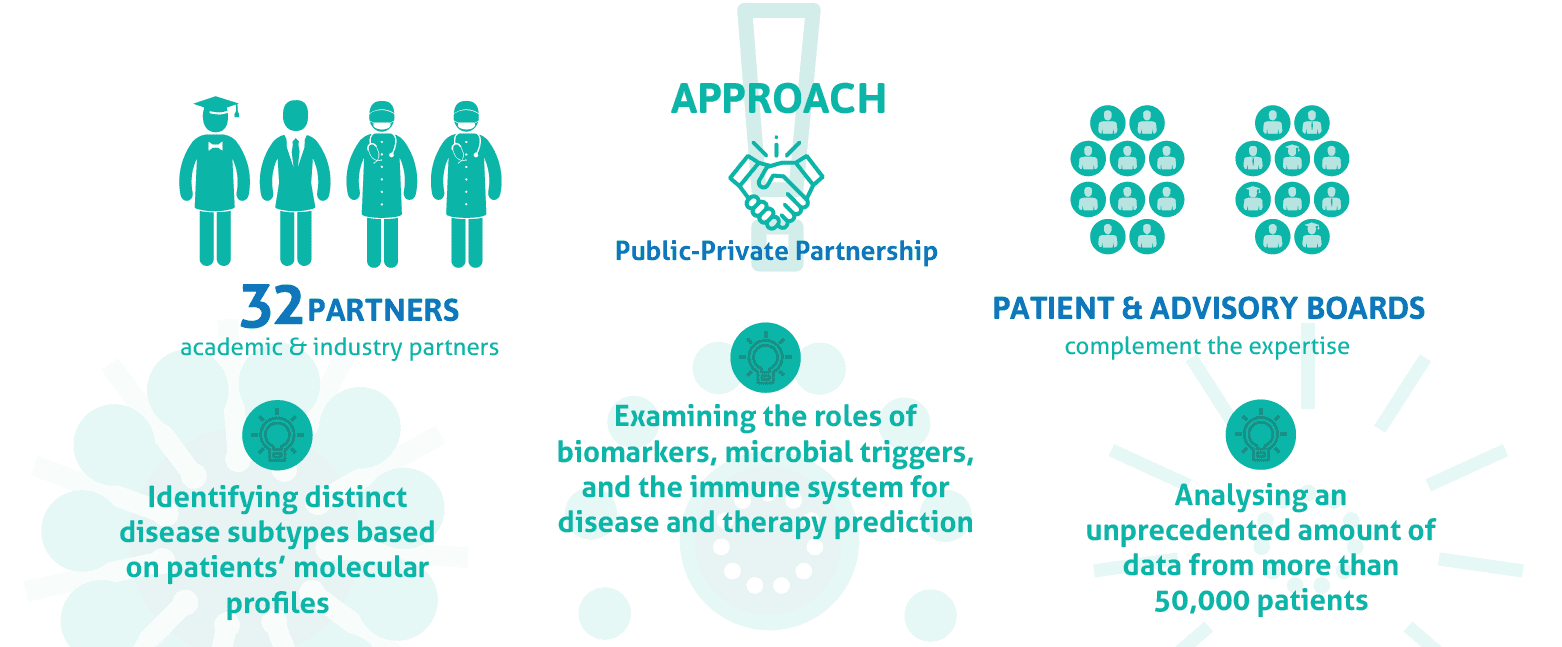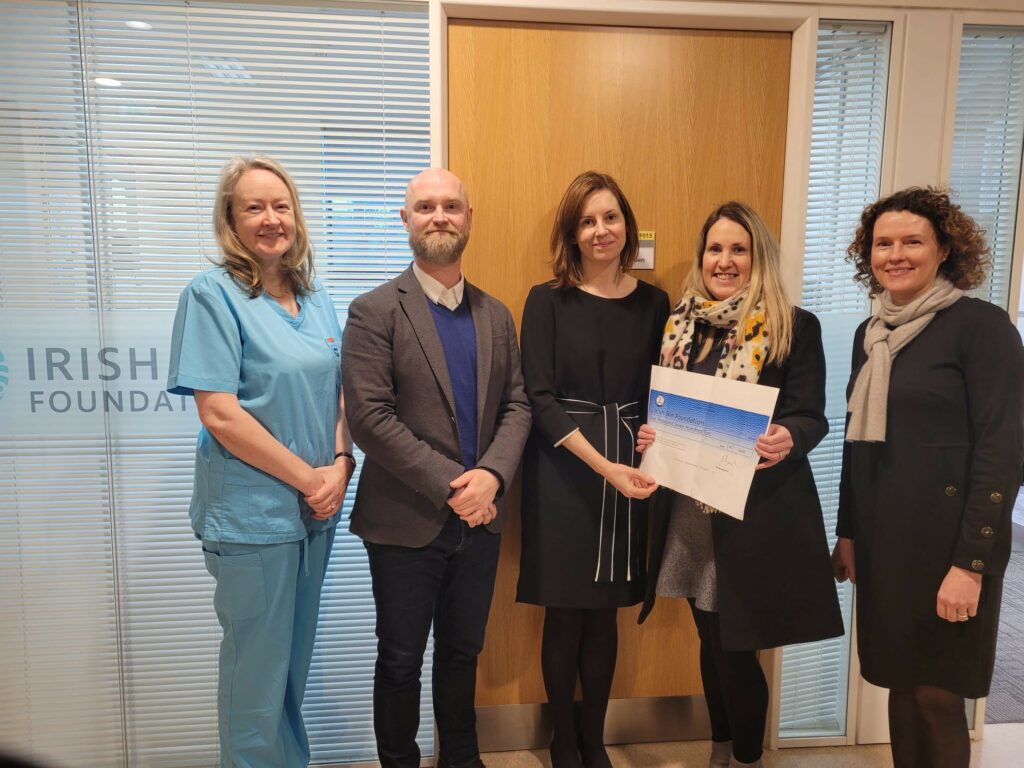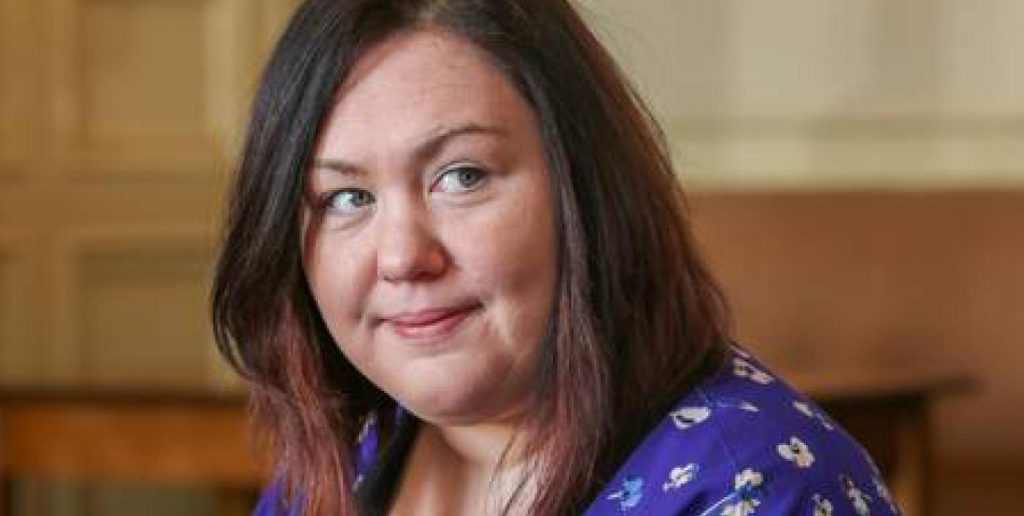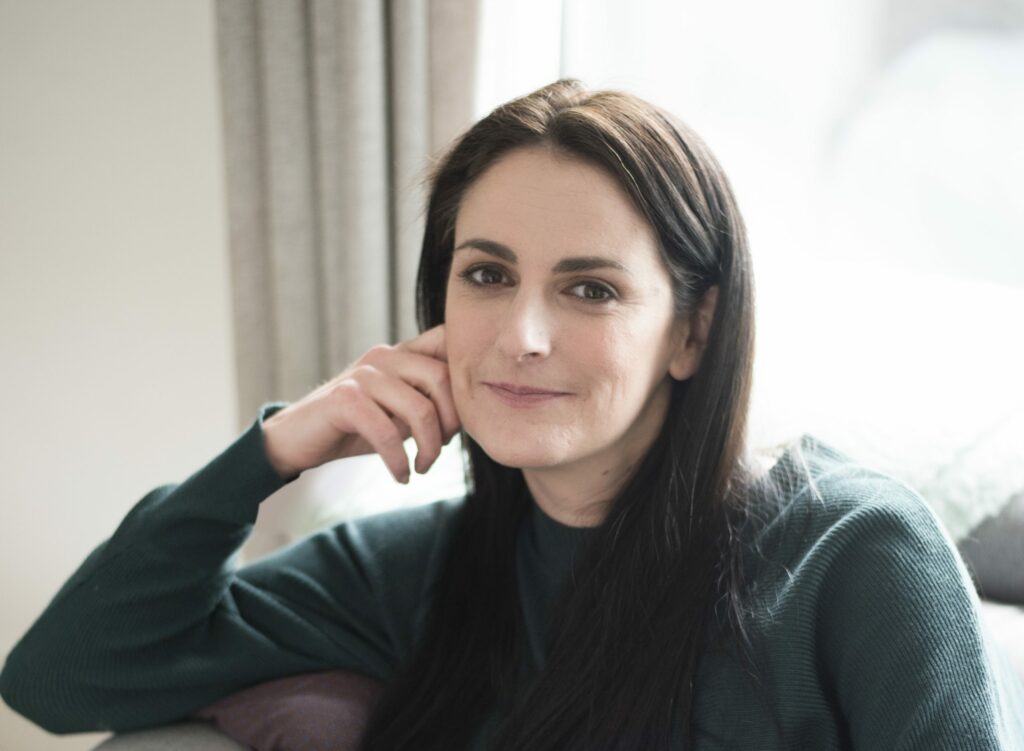BIOMAP have released a short animation which aims to demonstrate BIOMAP’s project work to alleviate the burden and consequences of AD and psoriasis for people living with these diseases.
BIOMAP – Biomarkers in Atopic Dermatitis and Psoriasis
What is BIOMAP?
BIOMAP (Biomarkers in Atopic Dermatitis and Psoriasis) is a large European project which launched in 2019, with the vision of improving the lives of patients affected by atopic dermatitis and psoriasis. It will aim to address key unmet needs in treating these two inflammatory skin diseases by analysing clinical and molecular data from more than 50,000 patients. Additionally, this five-year project will have a broad impact on disease understanding, patient care and future treatments.
Atopic dermatitis (AD) also known as eczema and psoriasis affect more than 300 million people worldwide and are highly variable in terms of onset, severity, progression over time and response to treatment. In Ireland upwards of 73,000 people have psoriasis and AD affects approximately one in five children and one in 12 adults. Inflammatory skin diseases can be a huge burden to patients and families, care-givers and healthcare systems. Yet, despite many years of research, there are still significant gaps in the understanding of both conditions.
- Related: Atopic dermatitis (Eczema) information page
- Related: Psoriasis information page
BIOMAP’s main aims:
- Increase understanding of the molecular patterns behind these skin diseases
- Identify biomarkers* for AD and psoriasis, that may help predict the course of the disease, and response to treatments
How will BIOMAP improve disease understanding atopic dermatitis and psoriasis?
BIOMAP will examine the causes and mechanisms of atopic dermatitis and psoriasis by identifying the biomarkers responsible for the variation in disease outcome. Taking advantage of recent technical developments in biomedical research, the project will drive drug discovery and improve direct disease management by combining clinical, genetic and epidemiological expertise with modern molecular analysis techniques and newly-developed tools in bioinformatics.
BIOMAP uses a multidisciplinary and holistic research approach which takes both inherited predisposition and environmental factors into account in order to understand the complex underlying mechanisms in these common inflammatory skin diseases.
- Related: Learn more about: BIOMAP website
- Related: BIOMAP_Infographic
This project involves 31 partner institutions from twelve European countries, including Trinity College Dublin. The BIOMAP consortium brings together partners with strong complementary backgrounds and includes clinicians, molecular biologists, bioinformaticians, data scientists and statisticians with experience in leading international research projects on inflammatory skin diseases.
Irish Skin Foundation (ISF) involvement
Along with other patient organisations, the ISF are delighted to be a member of the patient board of BIOMAP since 2019. The establishment of the patient board will help ensure that patients’ insights, opinions and wishes are taken into account across all the multiple components of the project, with the potential to improve the lives of people with atopic dermatitis and psoriasis.
Where does BIOMAP receive funding from?
This project has received funding from the Innovative Medicines Initiative (IMI) 2 Joint Undertaking (JU) under grant agreement No. 821511. The JU receives support from the European Union’s Horizon 2020 research and innovation programme and European Federation of Pharmaceutical Industries and Associations (EFPIA). BIOMAP is the first ever dermatology project within the IMI.

*What is a biomarker?
According to EUPATI “A biological marker is something that can be measured which points to the presence of a disease, a physiological change, response to a treatment, or a psychological condition. For example, glucose levels are used as a biomarker in managing diabetes.”
Reference: EUPATI, Biomarkers, accessed 28.04.2021 https://toolbox.eupati.eu/glossary/biomarker/
If you need help or guidance about managing your eczema or psoriasis, contact the ISF Helpline here.













